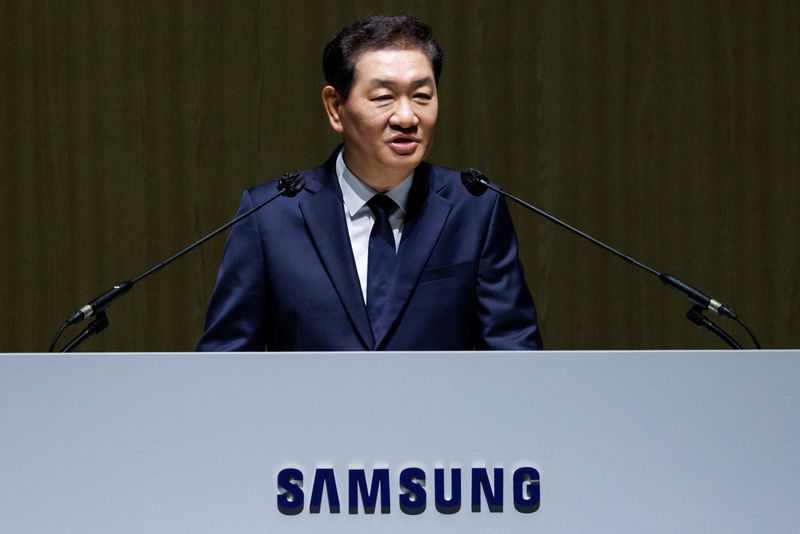TSMC Considering Intel's U.S. Factory Acquisition Amid Trump Administration's Pressure
 |
| TSMC explores partnership with Intel to enhance U.S. semiconductor industry |
The world’s largest semiconductor foundry, Taiwan's TSMC, is reportedly exploring the possibility of acquiring a controlling stake in Intel’s U.S. factories and operating them under the pressure of the Trump administration. According to Bloomberg’s report on February 14, 2025, TSMC is considering a partnership with Intel as part of discussions with the Trump administration to strengthen U.S. semiconductor manufacturing.
Bloomberg cites sources familiar with the matter, indicating that representatives from Trump’s team recently met with TSMC executives to discuss collaboration between TSMC and Intel. TSMC has expressed a willingness to cooperate with these ideas. While the discussions are still in the early stages, sources suggest that TSMC’s involvement would likely result in the company taking over the full operation of Intel’s U.S. semiconductor plants.
The negotiations could also involve potential investments from major U.S. semiconductor design firms and government support, including the possibility of acquiring Intel’s shares. This new development adds to a series of proposals reportedly suggested by the Trump administration, which includes the construction of advanced packaging factories in the U.S. by TSMC, as well as direct acquisitions of packaging orders related to Intel’s U.S. customers.
If the acquisition of Intel’s U.S. factories by TSMC materializes, it could provide a lifeline for Intel, which has faced significant challenges in recent years. Once a dominant player in the global semiconductor market, Intel has struggled to adapt to the mobile-focused changes in the industry, especially in the face of fierce competition from AI chip manufacturers like Nvidia. The company’s financial performance has declined, and it announced large-scale restructuring plans last year, including the layoff of 15% of its workforce.
According to Brian Jacobson, Chief Economist at Annex Wealth Management, combining TSMC’s expertise and engineers with Intel’s infrastructure could help realize Trump’s vision of making the U.S. the hub of semiconductor manufacturing.
TSMC and Intel have declined to comment on the matter. However, a White House official stated that while the U.S. government would support foreign companies investing in the U.S. and building factories, it was "unlikely" to support a foreign company taking over the operation of an Intel plant.
Following the news of TSMC’s potential acquisition of Intel’s U.S. factories, Intel’s stock initially dropped by 5.3% but later pared its losses, finishing the day down 2.20%. Meanwhile, TSMC’s stock rose by approximately 1%.
While the deal remains speculative, experts believe that both companies will need to make significant compromises for the partnership to work. The operational approaches and technologies used by chip manufacturers differ, meaning Intel would have to make substantial changes to its factory operations. TSMC, on the other hand, faces concerns over the potential leakage of key technologies during the process of operating Intel’s fabs.
The idea of a partnership between TSMC and Intel was also discussed during the Biden administration, although TSMC was initially uninterested in licensing manufacturing technology to Intel, fearing it might benefit competitors. The Biden administration, in turn, refrained from playing an active role in facilitating such a deal.
In contrast, Trump is eager to finalize such a deal and has maintained a strong relationship with TSMC. Bloomberg highlights that Trump’s administration has already proposed a range of measures to incentivize foreign companies to bring semiconductor manufacturing to the U.S. On February 13, Trump announced a policy of imposing reciprocal tariffs on foreign countries, emphasizing the need to bring semiconductor manufacturing back to the U.S.
The Taiwanese government, aware of Trump’s concerns over the semiconductor industry in Taiwan, convened a high-level National Security Council meeting on February 14 to discuss potential strategies. Taiwanese President Tsai Ing-wen reassured the public that the government would carefully respond to Trump’s statements, emphasizing the need to strengthen trade cooperation between Taiwan and the U.S. She highlighted that Taiwan would continue to encourage investment and facilitate the growth of the island’s semiconductor industry while fostering stronger economic ties with the U.S.
This ongoing collaboration between the U.S. and Taiwan could lead to increased investments in the U.S. market and a boost in trade balance between the two nations. Taiwan’s government intends to play a proactive role in guiding its industries toward greater global competitiveness while strengthening trade relationships with the U.S.



Comments
Post a Comment